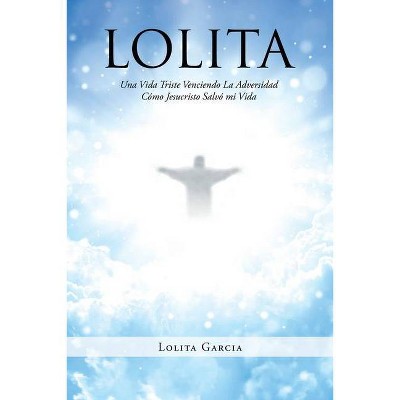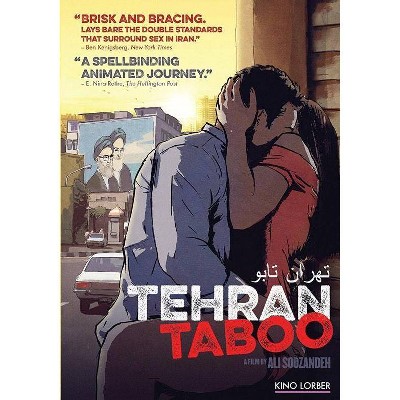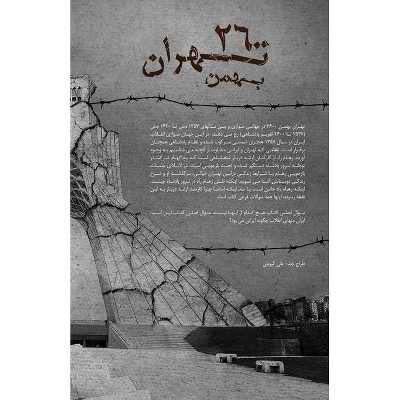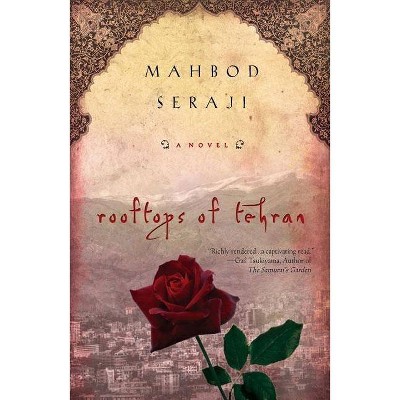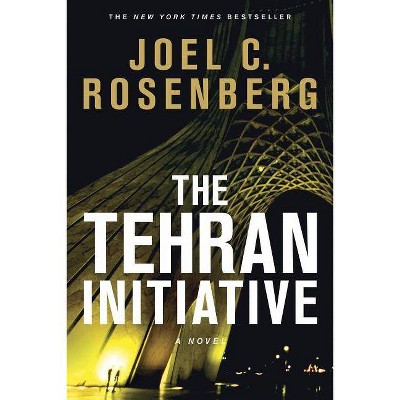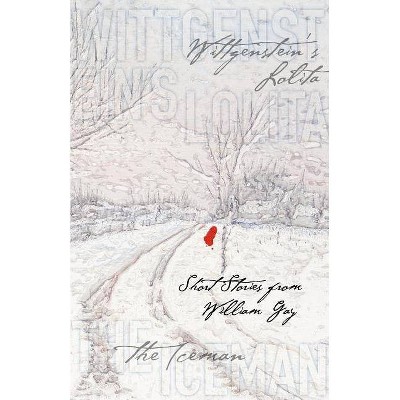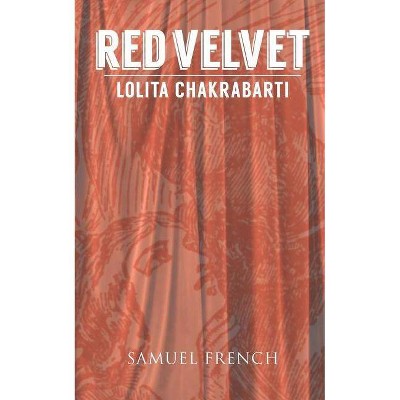Reading Lolita in Tehran - by Azar Nafisi (Paperback)
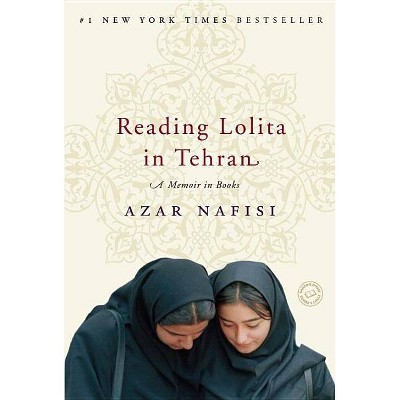
Similar Products
Products of same category from the store
AllProduct info
<p/><br></br><p><b> About the Book </b></p></br></br>Every week for two years in the Islamic Republic of Iran, Nafisi secretly gathered seven of her most committed female students to read forbidden Western classics. This extraordinary memoir is an exploration of resilience in the face of tyranny and a celebration of the liberating power of literature.<p/><br></br><p><b> Book Synopsis </b></p></br></br><b>#1 <i>NEW YORK TIMES </i>BESTSELLER - We all have dreams--things we fantasize about doing and generally never get around to. This is the story of Azar Nafisi's dream and of the nightmare that made it come true.</b> <p/> For two years before she left Iran in 1997, Nafisi gathered seven young women at her house every Thursday morning to read and discuss forbidden works of Western literature. They were all former students whom she had taught at university. Some came from conservative and religious families, others were progressive and secular; several had spent time in jail. They were shy and uncomfortable at first, unaccustomed to being asked to speak their minds, but soon they began to open up and to speak more freely, not only about the novels they were reading but also about themselves, their dreams and disappointments. Their stories intertwined with those they were reading--Pride and Prejudice, Washington Square, Daisy Miller and Lolita--their Lolita, as they imagined her in Tehran. <p/> Nafisi's account flashes back to the early days of the revolution, when she first started teaching at the University of Tehran amid the swirl of protests and demonstrations. In those frenetic days, the students took control of the university, expelled faculty members and purged the curriculum. When a radical Islamist in Nafisi's class questioned her decision to teach The Great Gatsby, which he saw as an immoral work that preached falsehoods of "the Great Satan," she decided to let him put Gatsby on trial and stood as the sole witness for the defense. <p/> Azar Nafisi's luminous tale offers a fascinating portrait of the Iran-Iraq war viewed from Tehran and gives us a rare glimpse, from the inside, of women's lives in revolutionary Iran. It is a work of great passion and poetic beauty, written with a startlingly original voice. <p/><b>Praise for <i>Reading Lolita in Tehran</i></b> <p/>"Anyone who has ever belonged to a book group must read this book. Azar Nafisi takes us into the vivid lives of eight women who must meet in secret to explore the forbidden fiction of the West. It is at once a celebration of the power of the novel and a cry of outrage at the reality in which these women are trapped. The ayatollahs don' t know it, but Nafisi is one of the heroes of the Islamic Republic."<b>--Geraldine Brooks, author of <i>Nine Parts of Desire</i></b><p/><br></br><p><b> Review Quotes </b></p></br></br><br>"Resonant and deeply affecting . . . an eloquent brief on the transformative<br>powers of fiction-on the refuge from ideology that art can<br>offer to those living under tyranny, and art's affirmative and subversive<br>faith in the voice of the individual."<br>-MICHIKO KAKUTANI, <i>The New York Times <p/></i>"[A] vividly braided memoir . . . Anguished and glorious."<br>-CYNTHIA OZICK, <i>The New Republic <p/></i>"Certain books by our most talented essayists . . . carry inside their covers<br>the heat and struggle of a life's central choice being made and the<br>price being paid, while the writer tells us about other matters, and<br>leaves behind a path of sadness and sparkling loss. <i>Reading Lolita in<br>Tehran </i>is such a book." -MONA SIMPSON, <i>The Atlantic Monthly <p/></i>"A poignant, searing tale about the secret ways Iranian women defy the<br>regime. . . . [Nafisi] makes you want to rush back to all these books to<br>experience the hidden aspects she's elucidated." -<i>Salon <p/></i>"A quietly magnificent book . . . [Nafisi's] passion is irresistible."<br>-<i>LA Weekly <p/></i>"Azar Nafisi's memoir makes a good case for reading the classics of<br>Western literature no matter where you are. . . . [Her] perspective on<br>her students' plight, the ongoing struggle of Iranian citizens, and her<br>country's violent transformation into an Islamic state will provide<br>valuable insights to anyone interested in current international events."<br>-HEATHER HEWETT, <i>The Christian Science Monitor <p/></i>"An intimate memoir of life under a repressive regime and a celebration<br>of the vitality of literature . . . as rich and profound as the novels<br>Nafisi teaches." <i>-The Miami Herald <p/></i>"An inspiring account of an insatiable desire for intellectual freedom."<br><i>-USA Today <p/></i>"Transcends categorization as memoir, literary criticism or social history, <br>though it is superb as all three . . . Nafisi has produced an original<br>work on the relationship between life and literature."<br>-<i>Publishers Weekly </i>(starred review) <p/>"Nafisi's passion for books is infectious, and her description of the<br>effect of the revolution on its people is unforgettable."<br><i>-Rocky Mountain News <p/></i>"[A] sparkling memoir . . . a spirited tribute both to the classics of<br>world literature and to resistance against oppression."<br>-<i>Kirkus Reviews </i>(starred review) <p/>"Nafisi artfully intertwines her own coming-of-age in pre-Revolutionary<br>Tehran with the daily frustrations of her pupils. . . . [She] relates her<br>girls' moving stories with great sympathy." <i>-Entertainment Weekly <p/></i>"[Nafisi] reminds us why we read in the first place." -<i>Newsday <p/></i>"As timely as it is well-written . . . As the world seems to further divide<br>itself into them and us, Nafisi reminds her readers of the folly of<br>thinking in black and white." <i>-</i>Cleveland <i>Plain Dealer <p/></i>"Readers will have a new appreciation for the worn Nabokov and James<br>titles on their bookshelves after reading Nafisi's engaging memoir."<br>-Minneapolis <i>Star Tribune <p/></i>"Nafisi's writing has painterly qualities. . . . She is able to capture a<br>moment and describe it with ease and melancholy. . . . <i>Reading Lolita in<br>Tehran </i>is much more than a literary memoir; it becomes a tool for<br>teaching us how to construe literature in a new, more meaningful<br>way." <i>-Library Journal <p/></i>"Brilliant . . . So much is right with this book, if not with this world."<br><i>-The Boston Globe <p/></i>"I was enthralled and moved by Azar Nafisi's account of how she defied, <br>and helped others to defy, radical Islam's war against women.<br>Her memoir contains important and properly complex reflections<br>about the ravages of theocracy, about thoughtfulness, and about the<br>ordeals of freedom-as well as a stirring account of the pleasures and<br>deepening of consciousness that result from an encounter with great<br>literature and with an inspired teacher." -SUSAN SONTAG <p/>"A memoir about teaching Western literature in revolutionary Iran, <br>with profound and fascinating insights into both. A masterpiece."<br>-BERNARD LEWIS, author of <i>What Went Wrong? <p/></i>"Anyone who has ever belonged to a book group must read this book.<br>Azar Nafisi takes us into the vivid lives of eight women who must<br>meet in secret to explore the forbidden fiction of the west. It is at once<br>a celebration of the power of the novel and a cry of outrage at the reality<br>in which these women are trapped. The ayatollahs don't know it, <br>but Nafisi is one of the heroes of the Islamic Republic."<br>-GERALDINE BROOKS, author of <i>Nine Parts<br>of Desire </i>and <i>Year of Wonders <p/></i>"When I first saw Azar Nafisi teach, she was standing in a university<br>classroom in Tehran, holding a bunch of red fake poppies in one hand<br>and a bouquet of daffodils in the other, and asking, what is kitsch?<br>Now, mesmerizingly, she reveals the shimmering worlds she created<br>in those classrooms, inside a revolution that was an apogee of kitsch<br>and cruelty. Here, people think for themselves because James and<br>Fitzgerald and Nabokov sing out against authoritarianism and repression.<br>You will be taken inside a culture, and on a journey, that you will<br>never forget." -JACKI LYDEN, author of <i>Daughter of the<br>Queen of Sheba</i><br><p/><br></br><p><b> About the Author </b></p></br></br>AZAR NAFISI is a visiting professor and the director of the Dialogue Project at the Foreign Policy Institute of Johns Hopkins University. She has taught Western literature at the University of Tehran, the Free Islamic University, and the University of Allameh Tabatabai in Iran. In 1981 she was expelled from the University of Tehran after refusing to wear the veil. In 1994 she won a teaching fellowship from Oxford University, and in 1997 she and her family left Iran for America. She has written for <i>The New York Times, The Washington Post, The Wall Street Journal, </i>and <i>The New Republic </i>and has appeared on countless radio and television programs. She lives in Washington, D.C., with her husband and two children.
Price History
Price Archive shows prices from various stores, lets you see history and find the cheapest. There is no actual sale on the website. For all support, inquiry and suggestion messagescommunication@pricearchive.us
